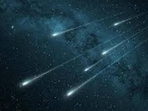life on earth
Latest from life on earth
Are we all aliens? Asteroid samples hint at existence of ancient watery world
NASA's Osiris-Rex spacecraft returned 122 grams (4 ounces) of dust and pebbles from the near-Earth asteroid Bennu

The great defrost: Mridula Ramesh, on the perils of a melting Antarctica
It's been a rapid slide for the continent of ice, which was expanding until 2014. Mridula Ramesh on an ancient past, near future,and trade-offs to be made today

Life on Earth seeded from outer space? New study suggests ‘strong evidence'
Scientists have previously found some or all of these bases in different asteroids that landed on Earth as meteorites. However, they could not be sure the chemicals came from outer space or were contaminated when they landed.

Scientists identify substance that may have sparked life on Earth
The scientists conducting the study are part of a Rutgers-led team called Evolution of Nanomachines in Geospheres and Microbial Ancestors (ENIGMA), which is part of the Astrobiology program at NASA. The researchers are seeking to understand how proteins evolved to become the predominant catalyst of life on Earth.

Researchers say meteorites could have paved way for life on Earth. Here's how
If the initial space debris had included carbonaceous chondrites a class of meteorite whose members contain significant amounts of water and small molecules, such as amino acids then it could have contributed to the evolution of life on Earth.







_1661495370571_1661495401050_1661495401050.jpg) 8
8